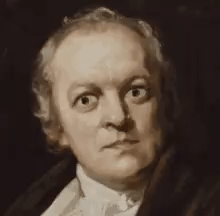Today I looked up “power” in the Thesaurus. This was in the context of doing some thinking around dialogue, discourse and discussion—especially in relation to formal and informal conversation. Thesaurus.com lists these synonyms under the definition of “ability, competence”:
Also today I had a neat chat with a friend about discourse, discussion, dialogue and dissertations. As an outcome for me was the reflection—“I love dialogue” and a whole lot of inspiration for further thought and research—it got me to thinking about the magic of dialogue, the power of discussion, the dynamism of conversation—in a way, the mysteries of personal connection.

I was raised by a chatty mom—she’s incredible. She has always looped folks into the conversation, found the wallflowers and opened them up—so much so that she’s known for waking the morning after the party with some hoarse vocal cords. She’s always advised me to find ways to invite others to talk about things they’re interested in, or even just about themselves. I recall some of the first times I intentionally did this almost twenty years ago, asking about someone’s flight training and aviation ambitions at a Wendy’s…
What’s this have to do with the power of dialogue? Both the conversation with my friend and these reflections on my mother’s advice loop around almost the joy of personal disclosure, the magical feeling of being seen, recognized and identified personally in conversation. This has also reminded me of a tip I’ve learned, used and shared in my work in schools—find something to compliment that someone made a choice about: shoes, book bag, etc. With these two simple tips: (1) enable folks to talk about their passions, and (2) notice and compliment choices they make may be some of the key dialogic strategies I’ve leveraged in my time both in the classroom and leading adults in schools.
I’m circling, now, around this idea of the ‘mystery’ of dialogue, resurfacing things that were influential for my development from some years back when I was immersed in studies of mysticism. What is the mysterious aspect of personal connection that can be surfaced in dialogue—that inspires, motivates, enthuses, emboldens, etc.? I’m looping now to Bakhtin’s idea or term “unfinalizable.” In the language of the mystics, there are interesting meditations on the finite and the infinite. A fun fact for me is the more-literal translation of Islam’s “Allahu Akbar” as “God is Greater” rather than “God is Great.” The “greater” here indicates infinitude—a kind of “unfinalizability.”
Nasrullah Mambrol mentions here that “Bakhtin’s conception of unfinalizability respects the possibility that a person can change, and that a person is never fully revealed or fully known in the world.” This inspired this tweet of mine earlier:
Of course the individual would rather be identified as the territory rather than the map, as the map “finalized” in the moment immediately becomes obsolete in the next moment. Thanks for bearing with me at this blog over the last two month break. I’m interested to hear your thoughts on the mysteries of dialogue in the comments below.





